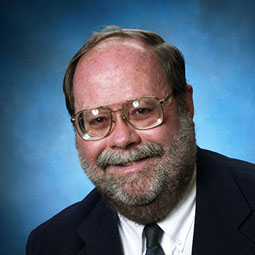Tainter is an anthropologist and historian who currently works as a Professor of Sustainability in the Department of Environment and Society College of Natural Resources at Utah State University. While in New Mexico he worked as an Archeologist at the USDA Forest Service.
He has published several works, including Drilling Down: The Gulf Oil Debacle and Our Energy Dilemma (2011), Supply-Side Sustainability (2003), Evolving Complexity and Environmental Risk in the Prehistoric Southwest (2018). Additionally he has published numerous articles, monographs, and appeared on film and television, including the documentary The 11th Hour.
Tainter is best known for his book The Collapse of Complex Societies (1988) where he examines the nature of collapse through numerous ancient civilizations. Tainter argues the collapse of a society follows from the success or failure of its problem-solving institutions and occurs when their investments in social complexity and energy subsidies reach a point of diminishing returns. From Tainter’s perspective, we are likely already past the tipping point towards collapse, but just don’t know it yet.
“Sustainability requires that people have the ability and the inclination to think broadly in terms of time and space. In other words, to think broadly in a geographical sense about the world around them, as well as the state of the world as a whole. And also, to think broadly in time in terms of the near and distant future and what resources will be available to our children and our grandchildren and our great grandchildren.
One of the major problems in sustainability and in this whole question of resources and collapse is that we did not evolve as a species to have this ability to think broadly in time and space. Instead, our ancestors who lived as hunter-gatherers never confronted any challenges that required them to think beyond their locality and the near term(…)
We have developed the most complex society humanity has ever known. And we have maintained it up to this point. I have argued that technological innovation and other kinds of innovation evolve like any other aspect of complexity. The investments in research and development grow increasingly complex and reach diminishing returns. We cannot forever continue to spend more and more on technological innovation when we’ve reached the point of diminishing returns, which I argue we have reached.
Our system of innovation is going to change very significantly over the next twenty to thirty to fifty years or so. By the end of the century, our system of innovation will not be anything like what we know today. It will have to be very different. And it’s likely that innovation is not going to be able to solve our problems as readily as it has done to this point. The technological optimists have assumed that the productivity of innovation is either constant or increasing. And in fact, what I think my colleagues and I can show is that the productivity of innovation is actually decreasing. What that means is that we will not forever be able to solve resource problems through innovation(…)
And so individuals need to take responsibility for their own ignorance. As I said, our species did not evolve to think broadly in terms of time and space and if we’re going to maintain our way of life, people have to learn to do so. People have to take responsibility for knowing and understanding the predicament that we’re facing. I have argued over the last few years that we need to start teaching early school age children in K to 12 to think differently, to think broadly in terms of time and space – to think historically, to think long-term about the future, to think broadly about what’s going on in the world around us instead of the narrow way – the narrow, local way – that most people live and think. So I put responsibility on individuals to broaden their knowledge.”
